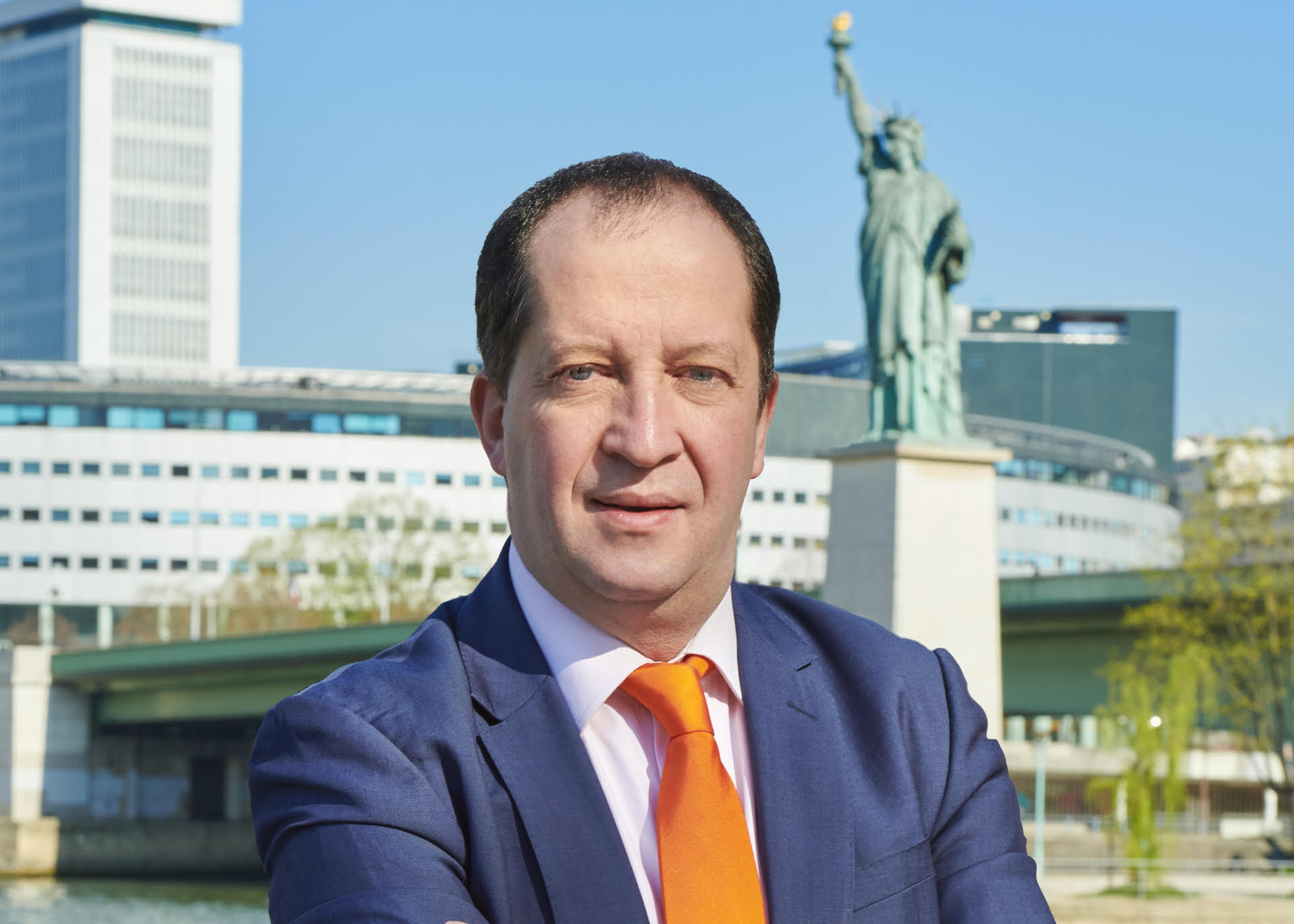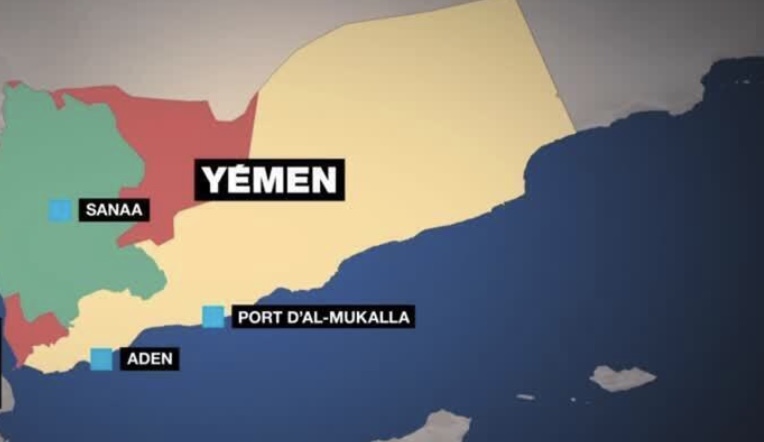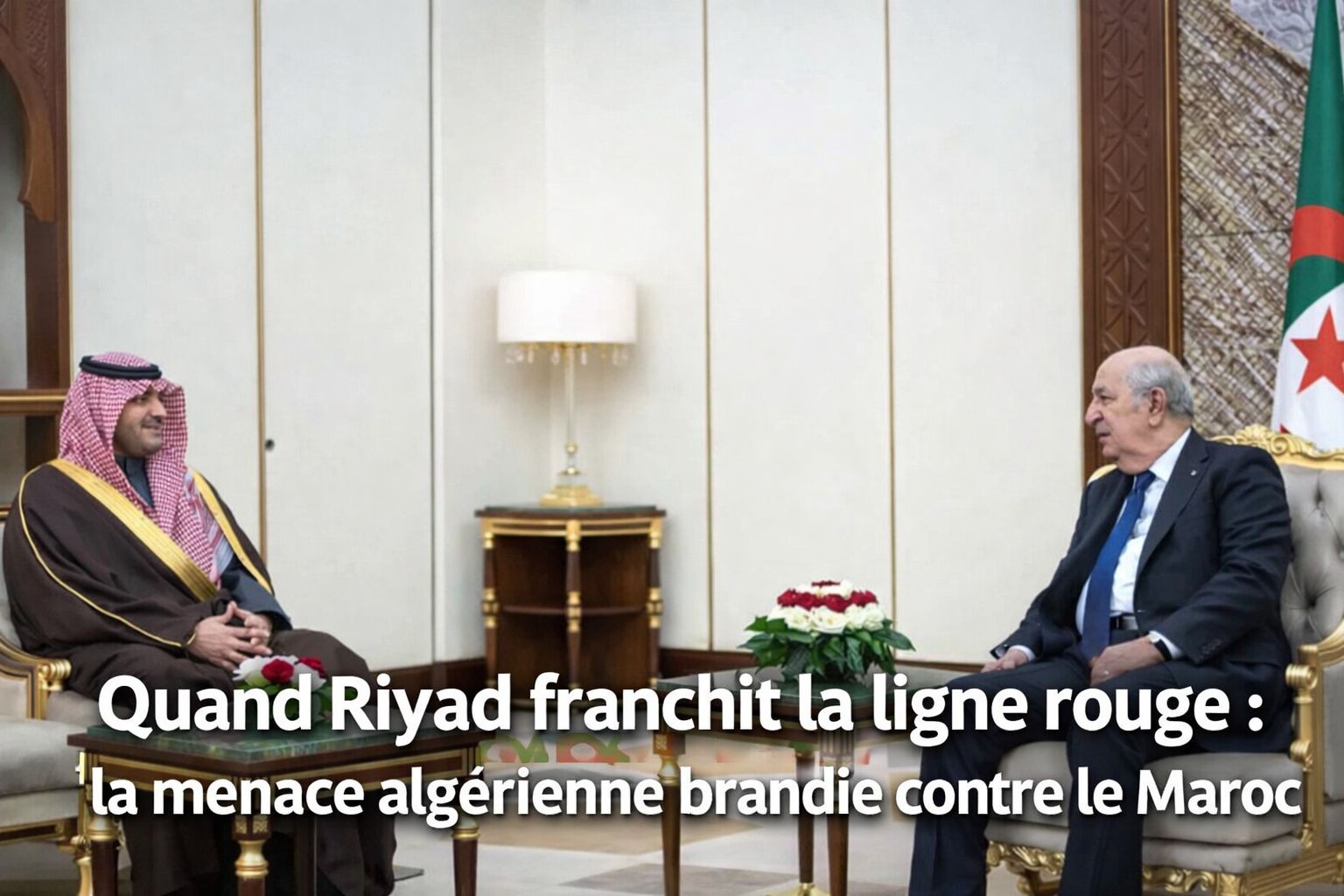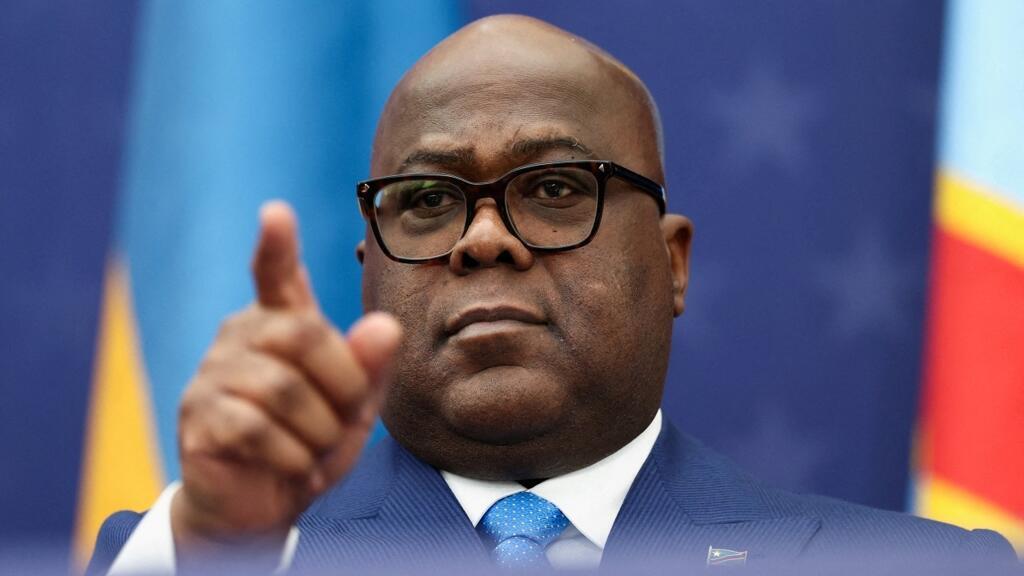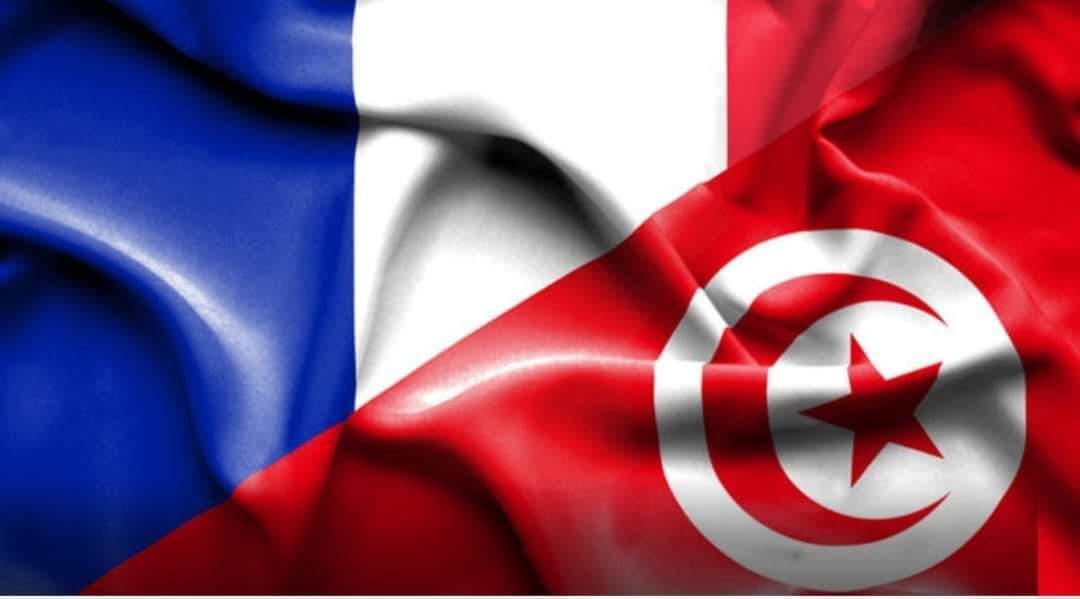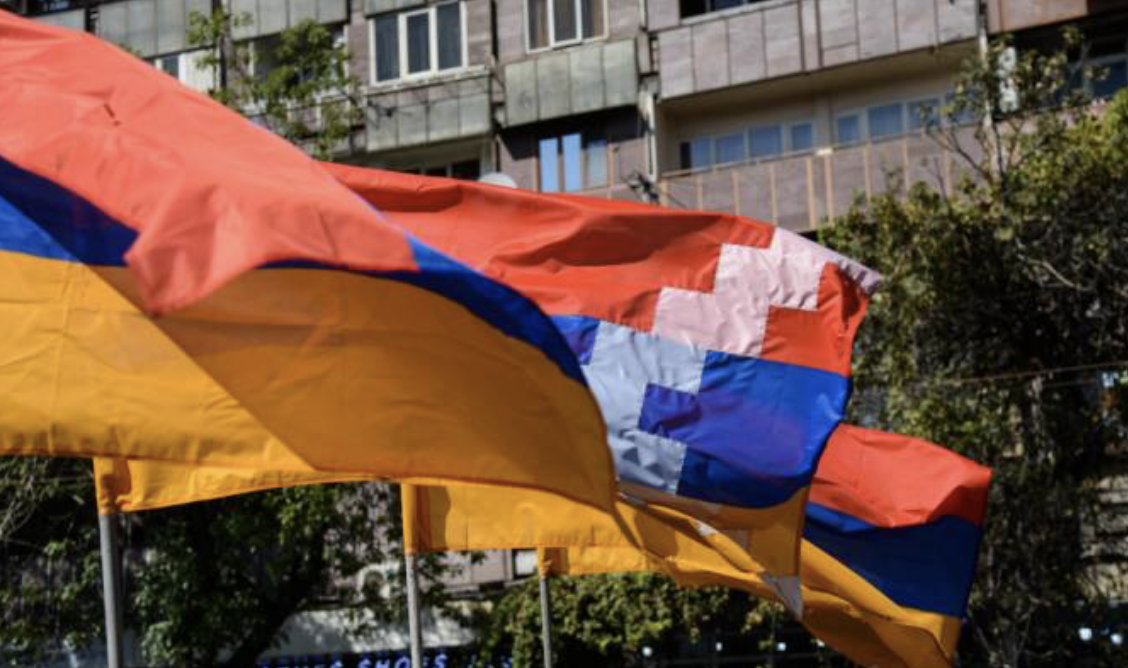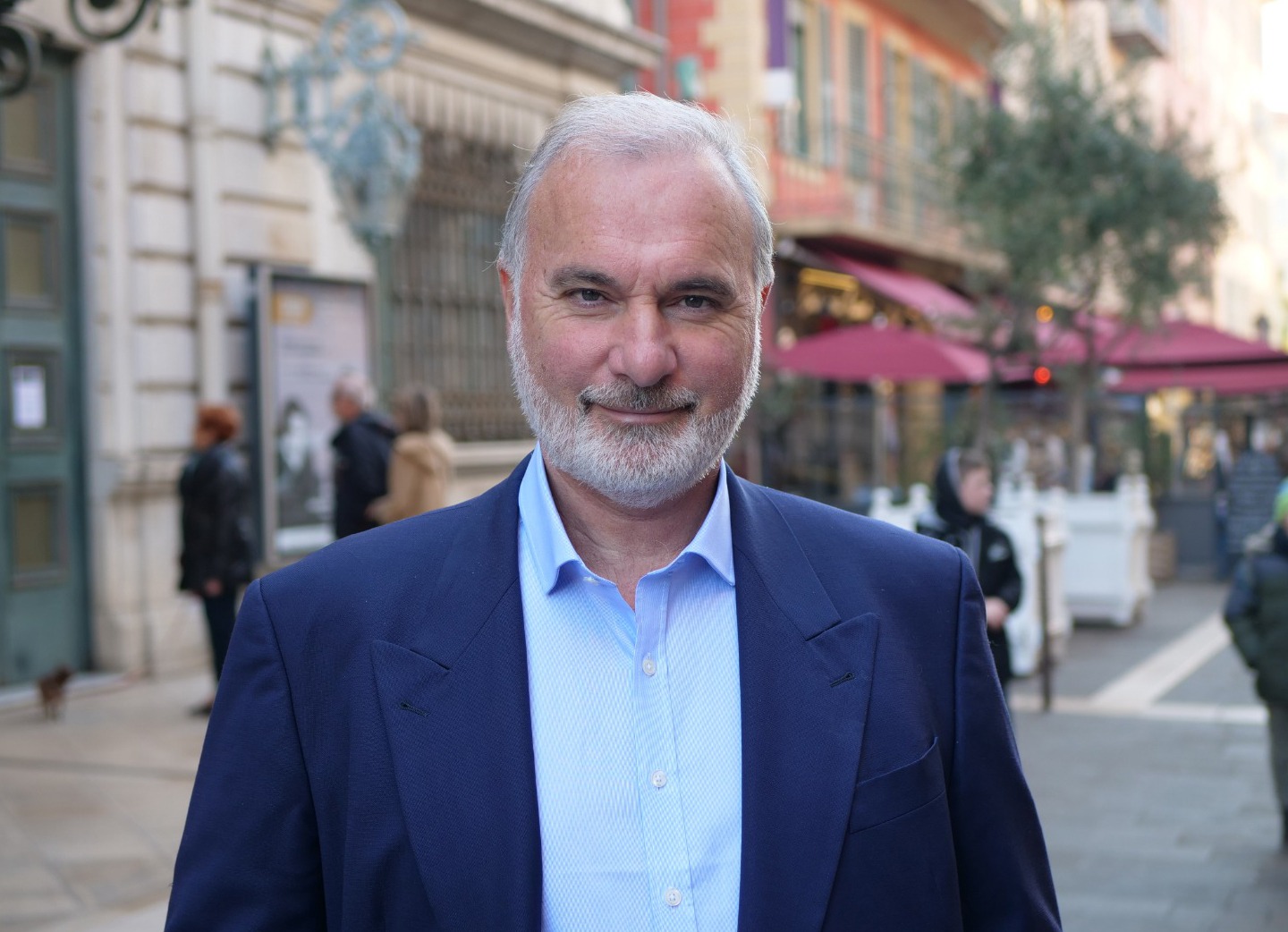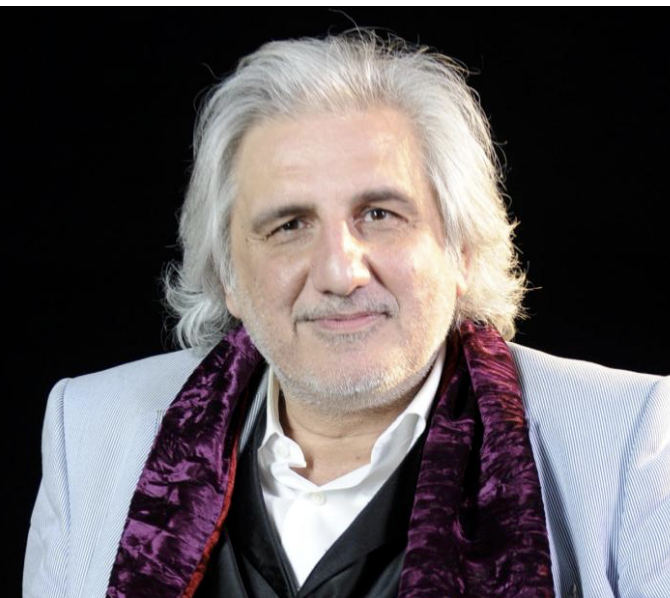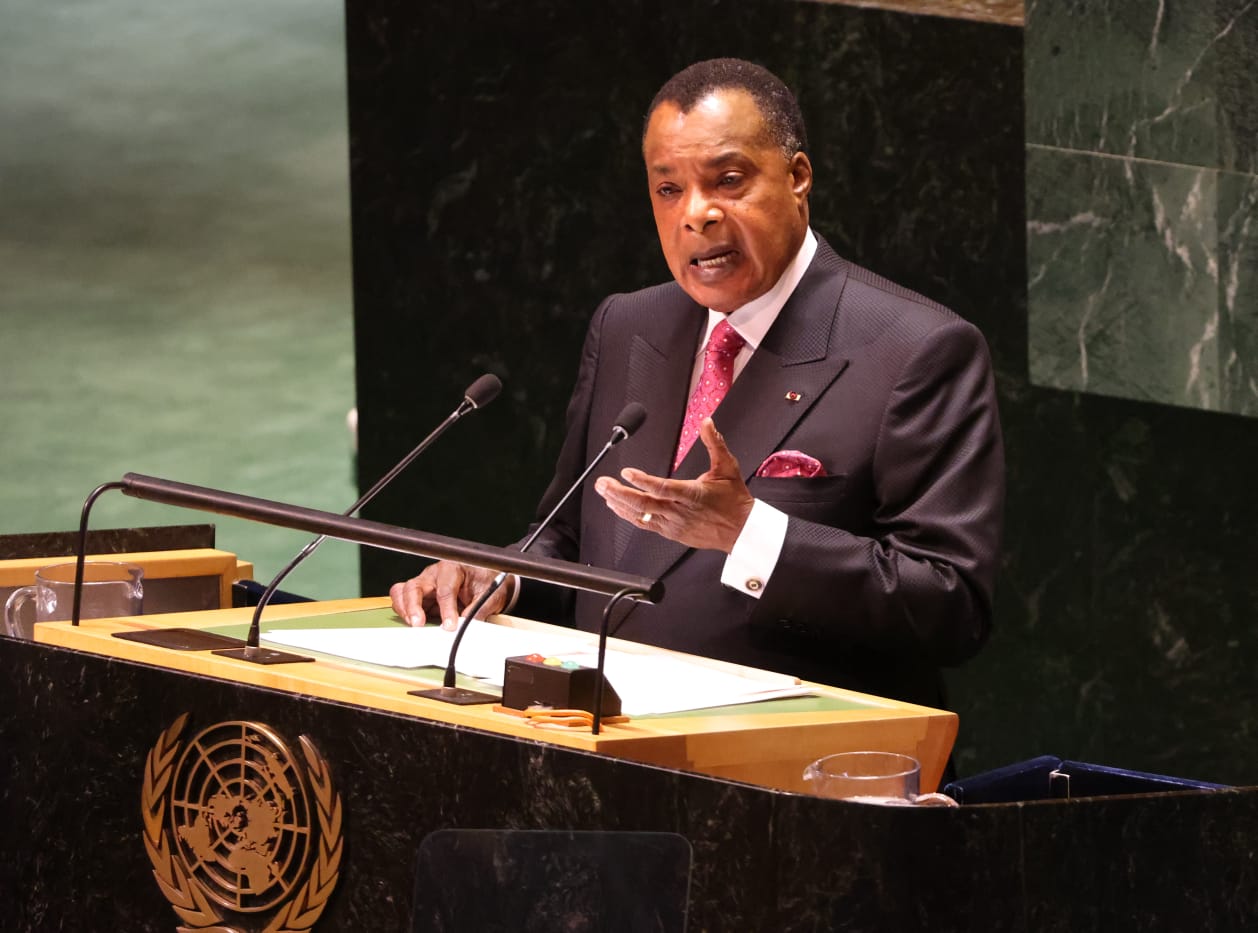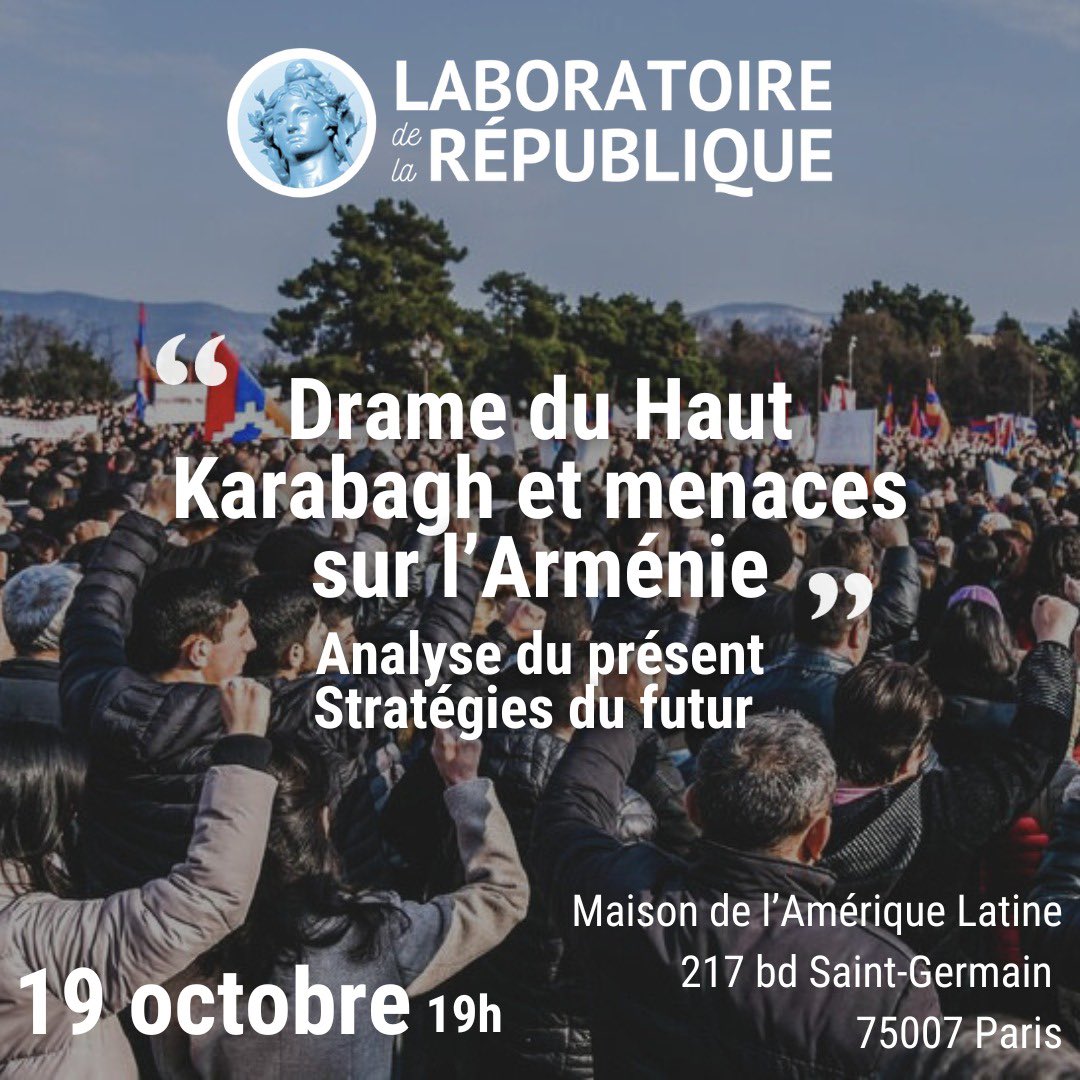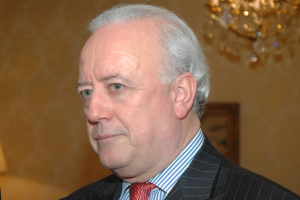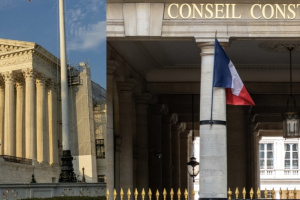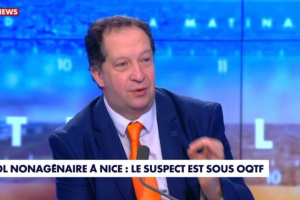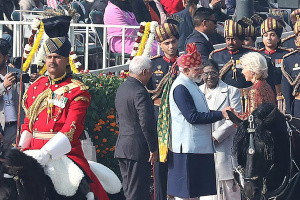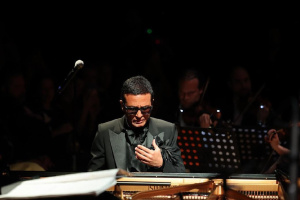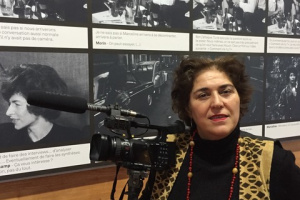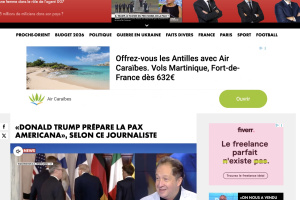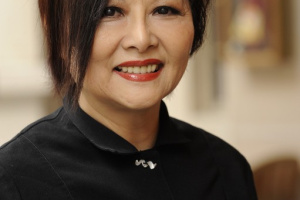Did the tension step up a notch in the Gulf? A Tunisia caught in a vice between the United Arab Emirates and Qatar amidst a ban imposed on Tunisian women to travel on the Emirates Company from December 27 to January 4. A Sheikh of Qatar retained in the Emirates and « escaped » to Kuwait. Airliners intercepted in flight. The Kingdom of Qatar erased from a map of the area explained to children in the new Louvre Abu Dhabi – it has been replaced in the meantime under international pressure (in terms of cultural diplomacy, we can do better)…
The blockade of Qatar, imposed in early June 2017 by a coalition of Saudi Arabia, the United Arab Emirates, Egypt and Bahrain, continues despite attempts to formal (Kuwait) and unofficial mediation remaining in vain as of now.
Opinion International met Sheikh Mohammed bin Abdulrahman Jassim Al-Thani, Deputy Prime Minister and Minister of Foreign Affairs of Qatar for an exclusive interview on the blockade.
This interview inaugurates the « In the middle » section, dedicated to the crises affecting the Middle East, the gateways and solutions that could stabilize the region, explaining the mysteries and wings of the conflicts and the ways to fight more effectively against terrorism and its ideological roots.
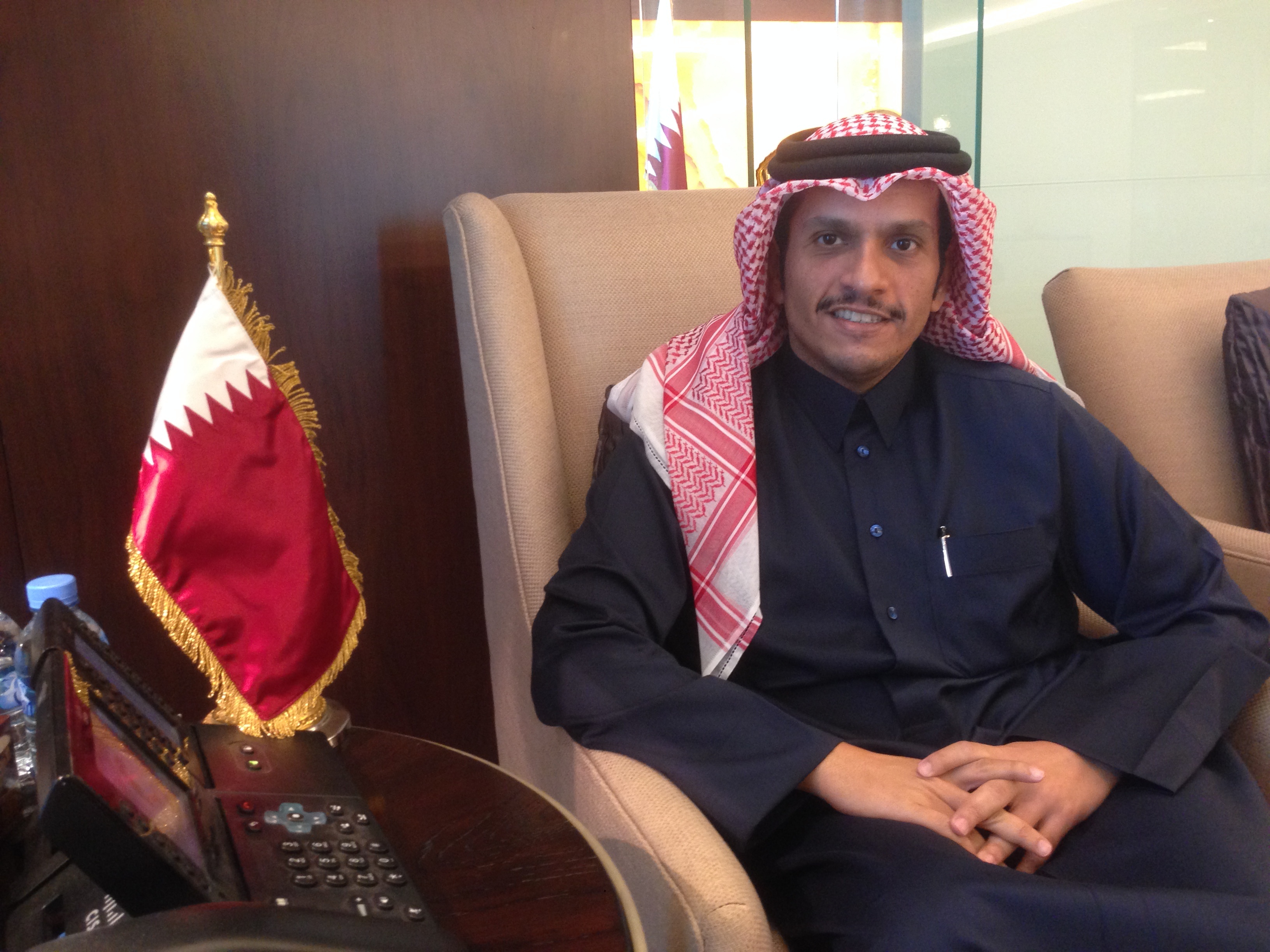
ENG:
Opinion internationale: Thank you for according us this interview regarding the blockade that your country has been the subject of since June 2017. Before anything else, I would like to explore the blockade’s consequences for the people of Qatar in terms of the general supply of goods as well as price inflation?
His Excellency the Foreign Minister Sheikh Mohammed bin Abdulrahman Jassim Al-Thani: As you see, the situation is as normal. There is no problem with the supply of goods and we continue without any particular difficulties. Moreover, there are no security issues, nor issues for businesses, who operate without hindrance. Public services are still fully functional too.
There are, however, two issues that are becoming clear. Most important is the social question. Families have been torn apart as a result of the blockade. Equally, the question of human rights is very relevant given that the blockade has caused serious problems for families, be they Qatari or from other Gulf nations. Qataris have seen their business activities curtailed in neighbouring countries, and the situation is difficult even for students.
The other side to the blockade is the regional atmosphere more generally, which has worsened dramatically and which has even led to online attacks against our country. We have borne witness to a real promotion of hatred against Qatar by media within the countries who support the blockade. And then there is the question of security for countries in the GCC (Gulf Cooperation Council) with which we have had a longstanding alliance in the fight against terrorism. All of this has stopped because our representatives can no longer participate in coordination meeting within the GCC.
OI: I wanted to return to the situation for families, since there are Qataris who are married with those from other nations in the region. How has the blockade affected them?
MFA: Well, they are currently separated and it’s a human disaster. We have some cases where family members have not been able to attend funerals of their relatives in the Arabian Peninsula as a result of the blockade. We have also cases where Qataris have died and we have not been able to repatriate their body. Clearly there are numerous examples of human tragedies. We believe there are around 11,000 mixed marriages (Bahrain, UAE and Saudi Arabia) and thus as many families that have been torn apart. We even received a witness statement from a women whose husband from Abu Dhabi divorced her at the airport, before sending her off to Qatar and keeping their son.
OI: Has the blockade left Qatar isolated?
MFA: No, we are not at all isolated. Qatar remains very active at the political and diplomatic level in the international sphere, at the Arab League and in other meetings. We are present everywhere where the blockade is discussed and we are in constant contact with our friends and allies. We also continue to participate in regional security debates in Syria, Libya or Iraq. Qatar has not surrendered its role nor its status as a country which helps to resolve regional conflicts.
OI: … and what’s the situation with the GCC?
MFA: The GCC has temporarily suspended all activities. As a result of the blockade, no further meetings can take place. Saudi Arabia is hosting the GCC and there has not been any contact since the last summit. In any case the GCC is not a priority for Saudi Arabia and during the last meeting of GCC ministers the Saudis decided to send a less senior delegation and did not send their designated minister. Qatar still believes that the GCC is a useful tool for resolving crisis and tensions as well as assuring Gulf cooperation but, clearly, others are trying to destroy it.
OI: One of the most serious accusations that are presented to you is your apparent support for terrorism? What do you make of this accusation?
MFA: Listen, this is completely false. Qatar has never supported terrorism as a state and has never allowed any citizen to support terrorism. They (blockading nations) use this type of accusation to gain the support of Westerners for their policies and hope that public opinion will believe them and support them against Qatar. I say it again, it is completely false.
For years we have had an important role in the fight against terrorism. We host the Coalition’s regional command headquarters (Central Command) and we also participate in the fight against terrorism financing. We have always offered help to those nations whose citizens have unfortunately joined the ranks of terrorist organisations. Qatar is present and plays an important role in every aspect of the fight against terrorism. How can it be believed that Qatar is supporting terrorism? What we believe is that the way in which some countries present this problem, as well as the policies they pursue, actually leads to terrorism. Qatar’s position since the beginning of each and every regional crisis is to adopt a well-informed and balanced position so as not to provoke further violence and to not offer any further justification for those who advocate violence. Moreover, we have never discussed or negotiated with those who advocate violence, and nothing is more violent than terrorism.
OI: One of the blockade’s consequences is the formation of a new regional axis with Iran and Turkey, who made the decision to station soldiers in your country at the end of December. What do you have to say about this new diplomatic orientation?
MFA: Qatar’s diplomatic strategy has never been one of axes. Qatar is a small country and we have to talk to everybody rather than forming alliances with certain countries against other countries.
We have a historic and strategic relationship with Turkey which dates back far beyond the instigation of the blockade. We have a defence agreement with Turkey and it is within this framework that Turkish soldiers are on our territory and they work in collaboration with the Qatari army.
With Iran, we are neighbours and share a pocket of natural gas which guarantees our energy independence. We have good relations but we also have differences of appreciation in our respective policies and we regularly exchange our points of view. But at the same time we think that relations with Iran and the GCC must be reviewed with regard to the sovereignty of each state.
The escalation of tension with Iran does not help regional security but it indicates that we disagree with Iranian and Saudi foreign policy. We hope that dialogue can begin again and we want the blockade to be lifted. You know, we live next to Iran, we are neighbours, therefore we can’t have the same perspectives as the US or Europe because we are not thousands of miles from this huge nation.
OI: Do you think that you are a direct victim of the tensions between Saudi Arabia and Iran? Do you fear a military invasion from Saudi Arabia?
MFA: I don’t believe that we should put Qatar between Iran and Saudi Arabia. Qatar believes that we should have good relations with all of our neighbours. We think that the problem within the GCC and the blockade of Qatar, and Iran, for that matter, needs to be dealt with at the UN’s Security Council. Moreover, the only one of our borders which is currently open is with Iran and we thank them for that.
We are always happy to work collectively in order to resolve our differences. Qatar is suffering as a result of collateral damage from tensions between Saudi Arabia and Iran and as I’ve said to you we are always considering the real motivations which first led to nations forming a blockade against us. We are sure that Saudi Arabia wants a Qatar that is under its influence and that will never happen. Qatar has its own identity, autonomy, history and it will make its decisions independently and this is non-negotiable. This will remain the case in the future. This attempt to break us will not work. The Qatari people are ready to fight to protect their sovereignty. We have to be prepared to protect our people. We consider this a last resort however, and only politics and dialogue will bring this crisis to an end.
OI: Can we begin to imagine a solution to end the blockade or is it far too early?
MFA: We have been looking for a diplomatic solution since the beginning of the blockade, so long as it respects our sovereignty and international law. But are the Saudis ready to discuss and negotiate? We continue to wonder what their real intentions are. When you look at the regional situation, what’s happening in Yemen or Lebanon, we see that Saudi policy has destabilised not only Qatar but also the region. Therefore we think that we need a global vision and to find solutions for the conflict in our region through dialogue. Not with the threats that we are currently experiencing.
OI: What are you expecting of France? President Macron was in Qatar in early December. Do you think that France can play a role in the blockade’s diplomatic resolution?
MFA: We know that France has had deep relations with Gulf nations for a considerable period of time, far outstripping the crises of these last few years. France also has a very deep relationship with Qatar, militarily, environmentally, businesswise, etc…
We also have 4 French schools. Therefore there are a lot of Qataris who are educated in the French system. We therefore have a special relationship with France.
We expect France to prioritise dialogue, facilitate a rapid solution to the GCC crisis, a priority, and support the plan proposed by Kuwait. But we also want France to condemn the violation of international law and human rights, while we want to lift this current blockade, which is illegal.
OI: His Highness the Emir of Qatar is a Francophile and the Qataris love France, far beyond what I would term “PSG passion”. What is your message to the French in this context?
MFA: You know, our relationship is both longstanding and strong. We want to strengthen this further through areas such as human, education and cultural exchanges. We want to see more French work here with us and have strong relationships with Qataris. We hope that this relationship will continue to strengthen and that we will be brought closer together.
Interview by Michel Taube








